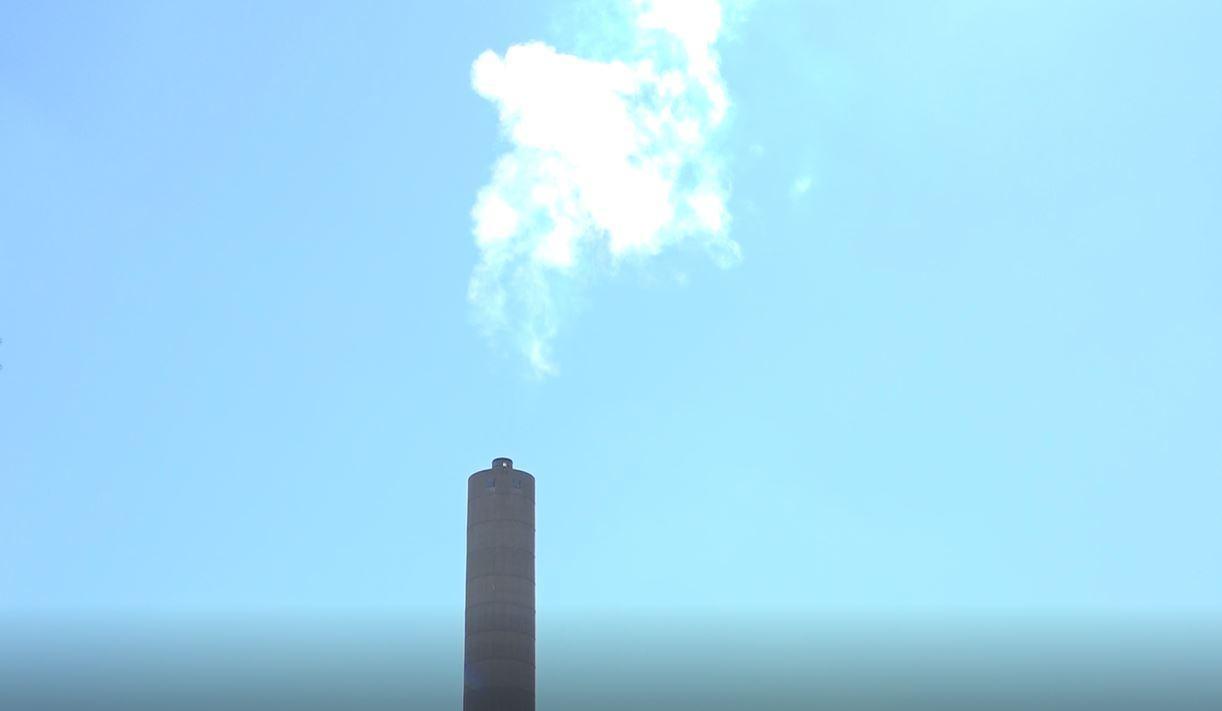PLYMOUTH TOWNSHIP, Pa. (WLVT) - After you throw out your trash, you probably don’t think much more about it. But in the waste management process, collecting your garbage is just the beginning. After your trash is picked up by the garbage truck, it can go through several different methods of waste management, depending on where you live.
Much of Montgomery County uses waste-to-energy, also known as trash-to-steam or incineration, a waste management method that burns trash to reduce its volume and generate electricity.
“Basically what we do is we take municipal solid waste that you or I would put out on the curb,” said David Sharp, director of business management with Covanta Plymouth, a waste-to-energy plant in Plymouth Township. “We combust that waste to create renewable, clean energy.”
But some community members in Plymouth Township are currently debating if they want to continue using incineration, after a malfunction at Covanta Plymouth, a waste-to-energy plant, drew some attention in December. Residents reported on Dec. 30 hearing some loud bangs and smelling an unpleasant odor.
“It smelled like burnt plastic and my son couldn’t even sleep in his bedroom because it was so bad,” said Plymouth Township resident Sarah Sterious.
Covanta officials explained a malfunction did result in a controlled shutdown of the plant that day.
“As with any industrial process, you’re going to have situations where equipment malfunctions or equipment fails. We did have a computer that lost power in December,” Sharp said.
Sharp said the controlled shutdown included releasing pressurized steam, which created a loud noise. Covanta officials claimed they were not the cause of the smell residents reported Afterward, Plymouth township officials said some constituents expressed concerns, leading to community meetings.
“What concerns the residents has to concern me as a member of council,” said Plymouth Township Council Member Karen Bramblett.
The Plymouth Township Council took a tour of the Covanta Plymouth plant, learning about how the process works:
When waste is delivered, it’s inspected and then pushed into a pit. A grapple picks up 10 tons of waste at a time and drops it in a hopper that leads to the combustion chamber. The trash burns at around 2,000 degrees Fahrenheit, and gases from the combustion then go through a series of air pollution controls, including a fabric filter baghouse to removal particulate matter.
“All of our emissions are constantly monitored, not just by Covanta but by the Department of Environmental Protection, as well,” Sharp said.
Meanwhile, the burning heats up water-filled pipes, creating steam that then pushes turbines to generate electricity.
“We provide energy for over 20,000 homes on an annual basis,” said Sharp.
Council members said they learned a lot from the tour, and that it will help them make informed decisions about waste management in their community.
There’s still a heated debate surrounding the Covanta Plymouth plant, which processes 1,216 tons of trash a day. Some community members say the plant, built in 1992, should be retired. They cite the nearly $74,000 ($73,045) in fines the Pennsylvania DEP has levied against Covanta Plymouth over the years for emissions and compliance issues.
“I don’t think there’s any place in the waste stream for them,” Sterious said. “My goal is to have the plant shut down.”
Covanta representatives have said malfunctions can happen at a plant that operates continuously, but that they are in compliance with DEP requirements over 99 percent of the time.
Mike Ewall of Energy Justice Network said it’s time to move on from waste-to-energy altogether. Energy Justice Network advocates for zero emissions and a phase-out of nuclear power, fossil fuels and incinerators.
“There’s no need to be burning trash,” Ewall said. “It’s the most expensive and polluting way to manage waste or to make energy, for that matter.”
Ewall believes taking trash directly to landfills is a better option, in conjunction with efforts to reduce waste.
“Using zero waste methods, getting composting going on curbside, getting the right bins in place and the right incentives so that people recycle more,” he said.
Covanta Plymouth officials actually agreed that there should be less waste going to their own plant.
“Reduce, reuse, recycle,” Sharp said. “That’s really how waste should be dealt with.”
But until there’s zero waste, there will always be a need for waste management, and with perhaps a debate on the best way to do it.



